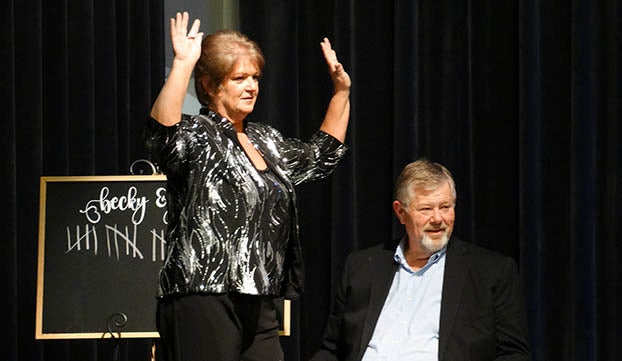Henry Lowe: Historian
Published 12:47 pm Wednesday, March 9, 2016
By Bobby Tingle
The Orange Leader
Henry “Jitterbug” Lowe believes history is important.
As a young man stationed at Fort Sill, he met Willie Shoemaker, a jockey, who was to become the most successful jockey in history. Shoemaker and Lowe connected in that chance meeting and Lowe learned that black jockeys raced professionally until “Jim-Crow” laws forbid it. That intrigued Lowe.
He spent time in the base library researching the past accomplishments of black men who jockeyed for a living. He was surprised to find that Shoemaker was accurate. This was a revelation to him and a seed was planted. This was a connection to the past that resonated with him.
As a child, Lowe loved racing. When it was discovered that he had the talent to stay on a racing horse as early as age eleven, adults in his life took advantage of his ability. He loved it. He was small, even smaller than the normal range of 110-115 pounds for match races. He was not allowed to ride in those races because he didn’t weigh enough. But he was allowed in races that were stipulated as catch weight races. Jockeys were not required to be a minimum weight to ride. The only stipulation was that the jockey had to stay on the horse for the entire race. “Jitterbug” had a knack for doing that. His weight gave him an advantage and he began to be sought out by owners racing their horses.
He moved from Nacogdoches to Orange in 1950 to do that. He jockeyed quarter horses all over Texas and Louisiana. During the week he was in school but on weekends he was traveling to racetracks. At one point, he moved to Three Rivers, Texas where he worked on a cattle farm during the week while continuing to race on weekends. His mother insisted he get an education in spite of his talent.
His good fortune at such an early age was a blessing and a curse. He was able to travel, enjoy the notoriety of success and earn a paycheck, but it was his curse as well. With money in his pocket and time on his hands between races he made bad choices. He had money and he was grown before he was of age. That lack of wisdom coupled with the resources to make grown up choices led him down a bad path. He struggled at times with those bad habits.
His love of horse racing and his chance meeting with Shoemaker along with his research revealing the history of black jockeys all came together for him later in life. When his racing and working at tracks on the west coast ran the course, Lowe returned to Orange where he now lives. His desire is to inspire young black men with local heroes. He can name several and not just sports heroes but local educators as well.
He was inspired as a young man by the history of black men doing what he learned to love. He wants a way to do the same for others.
Lowe is developing plans to open a black history museum in Orange in a building at 404 W Park Street. Although the building has been secured not much else is in place. The building is gutted, there are no utilities, the electrical infrastructure must be replaced and it will need carpentry work to finish the inside.
Lowe has a card he passes out touting the Orange African American Museum with his name listed as President of the organization. Recent plans for the ribbon-cutting ceremony, parade and partnership with the local NAACP to raise awareness for the venture have been postponed due to a recent illness.
Talk to Lowe and you will know that he has a passion for history and the possibilities for inspiring the youth of today. He has a big job ahead of him. But he has a talent. He can stay on the horse for the whole race. The race he is in now is different. Maybe that tenacity will see him to the finish line in this contest as well.





